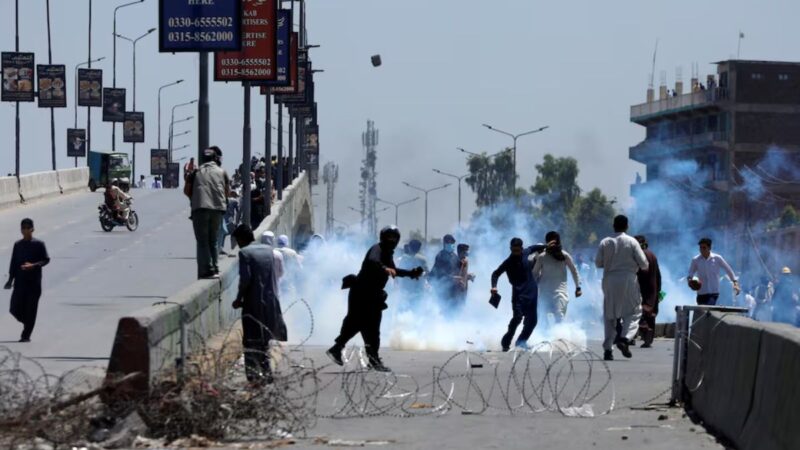Terror arrests fall to lowest level in almost a decade during coronavirus pandemic

The number of suspected terrorists arrested in the UK has fallen to the lowest level in almost a decade during the coronavirus pandemic, figures show.
Statistics published by the Home Office show that in the year to October, 215 arrests were made — 18 per cent down on the previous year.
“This was the lowest number of arrests for terrorist-related activity in the last nine years to September and is below the annual average of 253 arrests over the entire time,” said a document published on Thursday.
“These reductions may reflect the general reduction in crime during this period when there were restrictions on normal activities to control the spread of the Covid-19 virus.”
Figures showed a sharp drop in terror arrests from April, when the UK’s first national lockdown came into force.
Between April and June, 31 arrests were made, and there were 44 between July and September, below the previous quarterly average of 61.
In November, the UK’s terror threat level was raised to severe — meaning attacks are “highly likely” — following a spate of attacks in mainland Europe.
Please enter your email address Please enter a valid email address Please enter a valid email address SIGN UP Thanks for signing up to the News newsletter {{#verifyErrors}} {{message}} {{/verifyErrors}} {{^verifyErrors}} {{message}} {{/verifyErrors}} The Independent would like to keep you informed about offers, events and updates by email, please tick the box if you would like to be contacted
Read our full mailing list consent terms here The Independent would like to keep you informed about offers, events and updates by email, please tick the box if you would like to be contacted
Read our full mailing list consent terms here
Of the 215 arrests made, 39 per cent were still under investigation by 30 September, almost a third had led to charges, a fifth of suspects were released without charge and 9 per cent faced alternative action such as a caution or recall to prison.
Forty-four per cent of those arrested were white, the largest ethnic group among suspects for the third consecutive year, followed by people of Asian appearance (38 per cent), black (9 per cent) and other (8 per cent).
The proportion of British or dual national suspects rose by 10 per cent to 79 per cent.
While the “30 and over” age group accounted for the most arrests, the number of children arrested on suspicion of terror offences rose.
There were 17 under-18s arrested in the year, up by six on the previous 12 months.
The figures followed a warning from the head of UK counterterror policing about a “new and worrying trend” of child extremists.
Assistant commissioner Neil Basu said children as young as 14 had been detained in the past year, and almost all of those investigated by police had been radicalised online.
(Home Office )
“We are seeing more young people being drawn towards terrorist activity,” he added.
“That is a relatively new and worrying trend in the UK, because just a few years ago we were not seeing anyone that young amongst our case work.”
Mr Basu said the coronavirus pandemic had created a “perfect storm” as young and vulnerable people spent more time isolated and online, with fewer protective factors from school, employment, friends and family.
Jonathan Hall QC, the independent reviewer of terrorism legislation, said coronavirus also had an impact on the number of port stops under Schedule 7 of the Terrorism Act 2000, which halved in the year.
“Although the number of section 41 arrests, often used for the most serious counter-terrorist operations, fell in the first three months of 2020, the rate has gone back to 2019 levels,” he added.
The law allows police to arrest a person “reasonably suspected to be a terrorist” without a warrant.
Mr Hall said the number of terror offenders released from custody had fallen from 55 to 42, following government changes to stop the automatic early release of terrorists.
Emergency legislation was brought in following the knife attacks by released terrorists at Fishmongers’ Hall and Streatham, and parliament is currently considering a wider package of laws aimed at keeping them in prison for longer.
✕ UK raises terror threat level to ‘severe’ following attacks across Europe
But the policy has come into question after two men were able to launch an Isis-inspired attack inside a high-security prison in January.
Only one of the HMP Whitemoor attackers was a known terrorist, while his accomplice had been radicalised inside prison.
Then in June, the Reading attack was launched by a man who had recently been held in prison for offences not related to terrorism.
The number of people put on trial for terror offences stayed stable in the year, despite the closure of crown courts at the start of the coronavirus lockdown, because the cases have been prioritised.
Of the 54 people tried for terrorism-related offences in the year to October, 49 were convicted and most common sentence length in the latest year was under four years.
Five terrorists, including the Manchester bomber’s brother, Westminster car attacker Salih Khater and Buckingham Palace sword attacker Mohiussunnath Chowdhury, were jailed for life in the period.
James Brokenshire, the security minister, said: “The police and intelligence agencies have continued to work around the clock to keep us safe throughout the pandemic.






